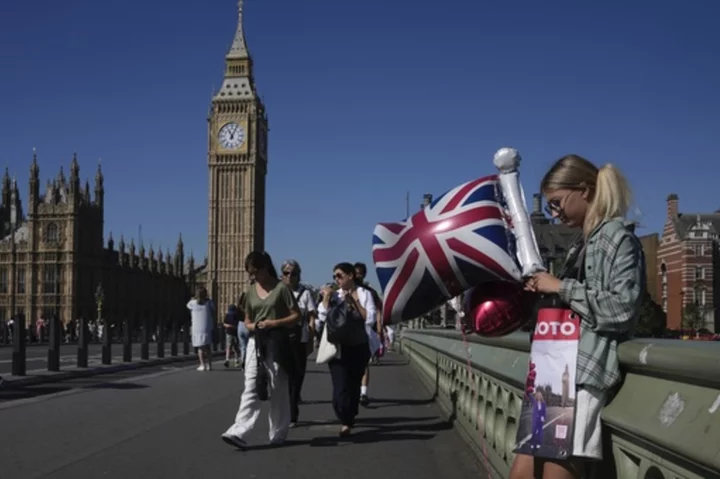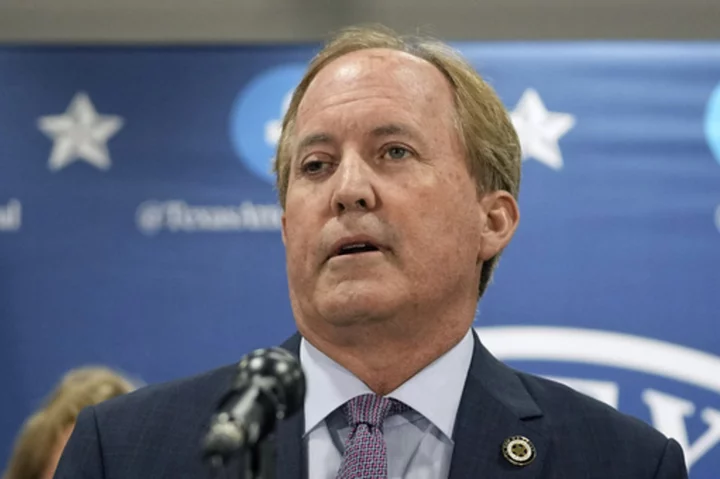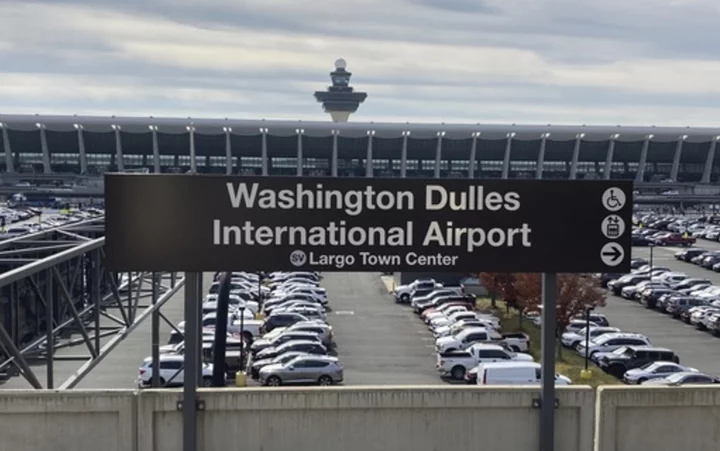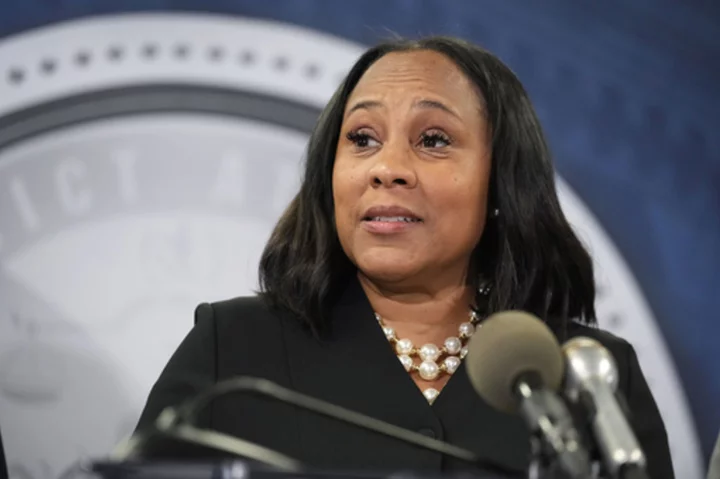LONDON (AP) — British lawmakers headed back to Parliament on Monday after their summer break. But thousands of U.K. children won’t be returning to their classrooms this week, because their schools are at risk of collapse from crumbling concrete.
The news is a start-of-term headache for Prime Minister Rishi Sunak as he scrambles to shore up flagging support for the governing Conservative Party ahead of a national election next year.
Sunak insists it's not his fault that more than 100 schools were told last week — days before the start of the new school year — to shut some or all of their buildings because they contain a type of lightweight, air-filled concrete widely used in construction between the 1950s and the 1990s.
School leaders are scrambling to find classroom space in nearby establishments or resorting to online instruction after the government’s last-minute directive, sparked when three schools thought to be safe suffered collapses over the summer.
The government says the “vast majority” of schools are not affected by problems with reinforced autoclaved aerated concrete. The material, known as RAAC, is lighter and less expensive than standard reinforced concrete — but also weaker, with a useful life of about 30 years.
The government says the total number of affected schools is likely to be in the hundreds but not the thousands.
“I know the timing is frustrating, but I want to give people a sense of the scale of what we are grappling with here,” Sunak told broadcasters. “There are around 22,000 schools in England and the important thing to know is that we expect that 95% of those schools won’t be impacted by this.”
To the opposition, crumbling schools are a metaphor for the state of a country they claim has become “Broken Britain” due to public-sector cost-cutting during 13 years of Conservative rule.
A former senior civil servant in the education department, Jonathan Slater, said Monday that in 2021 Sunak, who was then Britain’s Treasury chief, had halved the number of schools to be refurbished each year from 100 to 50 – far fewer than the 300 to 400 Slater said were needed.
Sunak said that allegation was “completely and utterly wrong.” He said refurbishing about 50 schools a year was in line with what past governments had done.
The use of RAAC was not limited to schools. Courts, hospitals and other public buildings were also built using aerated concrete, often for roofs.
Labour Party education spokeswoman Bridget Phillipson said the government was “still not being upfront about the scale of what we are facing" and “ministers need to get a grip on this.”
The school crisis brings more unwanted drama for Sunak, who took office 11 months ago with a promise to restore steady government after his predecessor, Liz Truss, rocked the economy with a plan for big, unfunded tax cuts.
Sunak is already struggling to meet his five key pledges, which include halving inflation from its 11% high by the end of the year — it was 6.8% in July — and cutting the number of migrants reaching the U.K. across the English Channel in small boats. Opinion polls put the Conservatives as much as 20 points behind the Labour opposition, with an election due to be held by the end of 2024.
Despite the poll lead, Labour leader Keir Starmer faces criticism that his dull, lawyerly approach to politics is failing to excite the electorate.
Starmer took over in 2020 from left-winger Jeremy Corbyn, who led Labour to two election defeats. Starmer has tried to nudge the party back toward the political center ground it occupied under former Prime Minister Tony Blair. Blair is Labour’s most successful leader, winning three successive elections starting in 1997, but remains a controversial figure in the party, vilified by some for watering down Labour’s socialist values and joining the U.S.-led 2003 invasion of Iraq.
Starmer tried to strengthen his hand by shaking up his top team on Monday in a bid to create a government-in-waiting to fight the next election.
He promoted several lawmakers from the right of the party, including Liz Kendall, Peter Kyle and Pat McFadden, and demoted potential rival Lisa Nandy, seen by some as a future leader.
There was a promotion for deputy leader Angela Rayner, who adds responsibility for “leveling up” — addressing Britain’s huge economic and social inequalities — to her deputy leader role. A sometime Corbyn ally popular with the party grassroots, Rayner is seen as a valuable contrast in style and tone to Starmer.
Harriet Harman, the longest-serving Labour lawmaker, told the BBC that the shuffle was not about “the politics of the left, right and center of the Labour Party.”
“The point is in each one of these jobs, are they somebody who is competent and can give hope?” she said.









